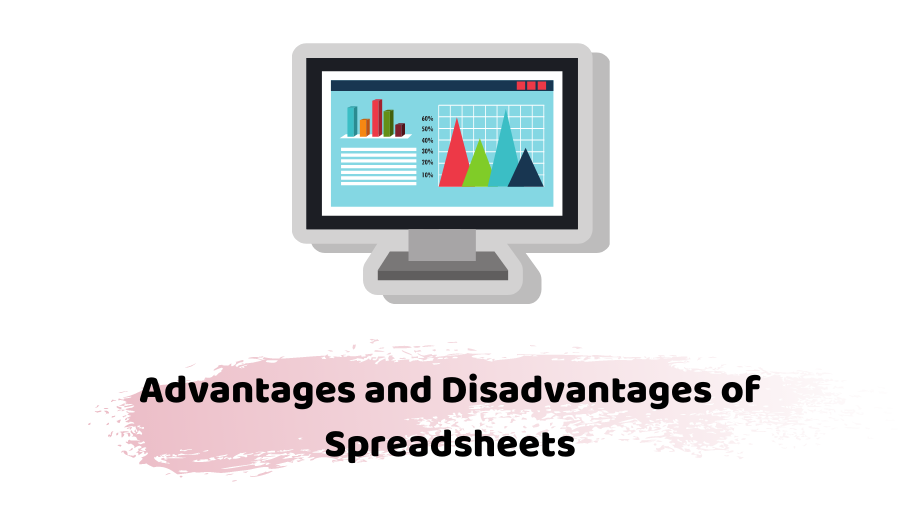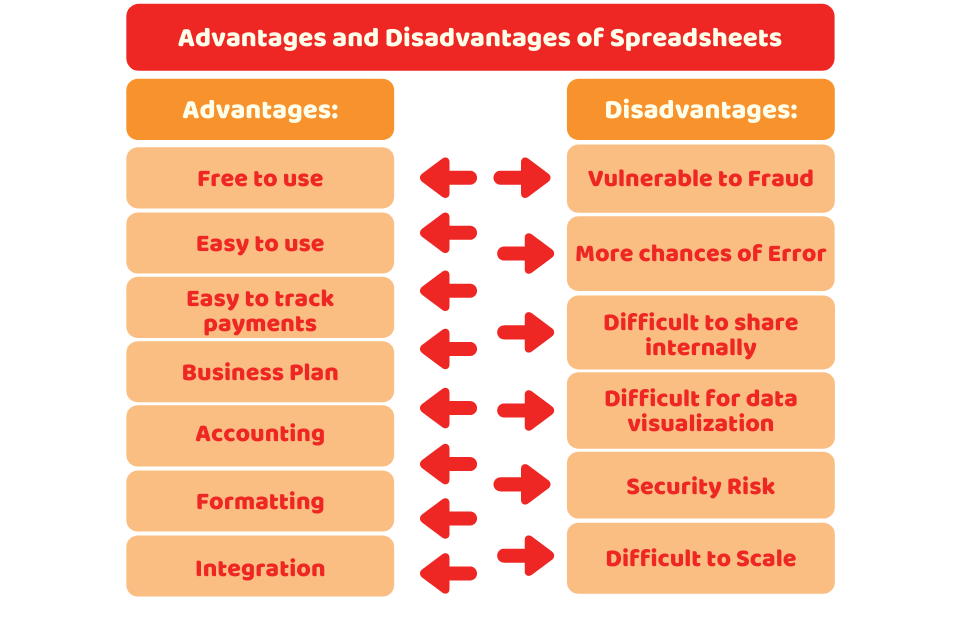In business, making the right decision at the right time is crucial. For it, you need to have valid information with a strategic plan. In this regard, using the right tool for recording, analysing and storing data is essential. Spreadsheets can be the best tools to manage your business operations effectively. These are popular amongst accountants and bookkeepers to collect and track data. However, there are few limitations that may not make them the best choice for all. Let’s explore the advantages and disadvantages of spreadsheets to know whether it suits your business or not.
Accotax is an accounting firm that offers inclusive financial services for small business owners, self-employed, landlords and freelancers at a reasonable price. If you’re the one, you may contact us today!
Advantages and Disadvantages of Spreadsheets
Along with tracking orders and finances, spreadsheets can be advantageous for maintaining the database. Being inexpensive, they’re simple and easy to use for a new company. They allow you to organise, manage and analyse data for your business growth.
However, they are not the perfect solution for all businesses. There are some setbacks: lack of flexibility or control, unreliability and limited capacity. With the limited features, it becomes less productive for many businesses.
So, let’s break down its advantages and disadvantages to get a broader view.
Advantages
Here are some of the common advantages of spreadsheets.
1) They’re free
You can get access to spreadsheet software easily and they’re most often free. The most common examples are Microsoft Excel and G-Suite, where you can easily access them with just an internet connection.
2) Easy to use
The spreadsheets software is easy to use. Whether you want to manage your personal finances or want to make tables for any purpose, it is easy to use. Except for the usage of complex formulas, anyone can record information in spreadsheets and it doesn’t require special training.
3) Easy to track payments or inventory
Tracking payments and inventory can be a complex and time taking task, but spreadsheets make it easy for you. Spreadsheet software can be an affordable option to analyze the company’s earnings and spending.
4) Business Plan
You czn prepare a rough model of your business plan with this. In addition, you can use it to track various aspects of your company like legal structure, its strengths, weaknesses, revenue plan, etc. Besides, you can get many online temples for your business.
5) Accounting
Accounting is one of the major functions of spreadsheets. If you’re an accountant and want free software to create a balance sheet, financial statements, budget, you can use spreadsheets for it. Furthermore, you can also use them for expense tracking, forecasting and calculation of loans.
Are you looking for an Accountant? Click here to see the cost of our inclusive monthly packages!
6) Integration
You can integrate your spreadsheet software with other software to boost its productivity.
7) Formatting
This software allows you to do formatting to navigate lots of financial data. With multiple formatting options, you can make your user visually appealing and understandable. For example titling, colouring, etc.
Disadvantages
Though spreadsheets are free and easy to use but they’re not suitable for all businesses due to:
1) Vulnerable to fraud
A spreadsheet is vulnerable to fraud as there is not a sole control that makes it accessible to any other person to change formulas, values etc. And, these changes cannot be detected.
2) More chances of error
They are more chances of human error who use this software for a large amount of data. A small mistake can cost you thousands of pounds.
3) Difficult to share internally
If a single person is managing the spreadsheet, it works well. But if there are more members added to the team, it’d be difficult to share and update the spreadsheet information with the whole team.
4) Difficult for data visualization
Though you can prepare charts and graphs on spreadsheets but assembling the visual data on it is a daunting task.
5) Security Risk
Commonly, spreadsheets are not secure and have a greater risk for mismanagement. Besides, sensitive information can’t be protected from hackers, even if it is protected by a password.
6) Difficult to Scale
Once your business starts growing, its customer list, sales, etc also increases. However, if you make a large spreadsheet, it is more prone to errors and mistakes. Moreover, large spreadsheets are troublesome for users and management alike.
Quick Sum Up
To sum up, we can say that you need to consider the advantages and disadvantages of spreadsheets before utilising them for your business. As a general rule, you need to remember that spreadsheets are suitable for small businesses or sole traders that deals with small data. So, if you’re a medium-scale or a large business, you need to use other software for reliability, accuracy and saving time.
Accounting services at Accotax take the burden of financial work required for the robust growth of your business. Whether you’re concerned about the company formation, accounts, taxes, tax return, payroll or financial advice, we cover it all. Reach out to our certified accountants in London to overcome your financial anxieties!
Get an instant quote for a customized offer!
Disclaimer: This blog is intended to provide general information on the pros and cons of spreadsheets.






















































